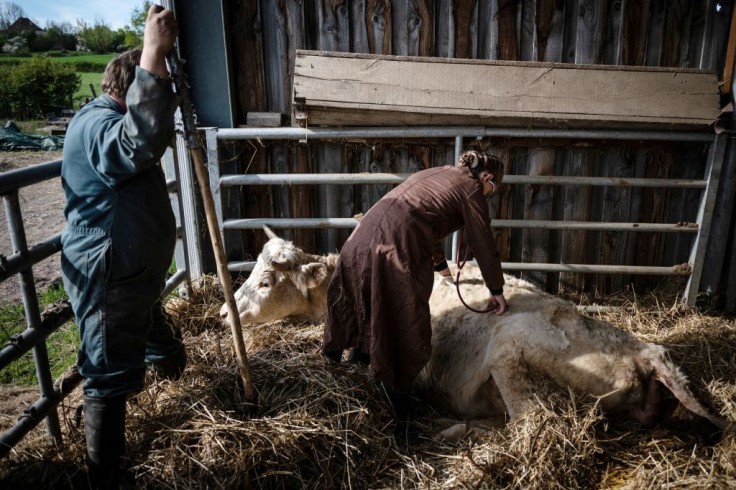
A second person in the U.S. has been constrained with avian influenza connected to dairy cows, according to the Michigan Department of Health and Human Services on Wednesday.
Second Bird Flu Case Related to Dairy Cows
The individual, a farmworker regularly vulnerable to contaminated livestock, encountered mild manifestations and has since recuperated, the department declared.
"The overall health risk to the public remains low," said Dr. Natasha Bagdasarian, Michigan's chief medical executive, in a press release. "We have not observed any sustained human-to-human transmission at this time. This is precisely how public health should function, by early detection and monitoring of emerging diseases."
The Centers for Disease Control and Prevention (CDC) recorded that the individual was watched carefully for manifestations after risk to contaminated dairy cows. The individual acquired conjunctivitis or pink eye, and an eye sample tested positive for the infection, while a nasal sample tested negative.
During a press briefing on Wednesday, Dr. Nirav Shah, CDC's principal deputy director, noted that the negative nasal sample is somewhat promising.
"It lowers, though does not eliminate, the likelihood of respiratory transmission," Shah said. This marks the second case of pink eye due to bird flu, with the first occurring in a Texas dairy worker diagnosed in March, who also exhibited only conjunctivitis.
The CDC plans to sequence the infection from the Michigan worker to recognize if it has mutations that could facilitate human-to-human transmission, with analysis anticipated later this week, Shah specified.
Michael Osterholm, an infectious disease expert at the University of Minnesota, declared, "I don't think this alters the risk profile for human-to-human transmission."
Read Also : US FDA Finds No Traces of Avian Flu Virus in Sour Cream, Cottage Cheese, Powdered Infant Formula
Bird Flu Vaccine Anticipated to be Ready Within a Few Months
Dawn O'Connell, Assistant Secretary for Preparedness and Response at the Department of Health and Human Services declared during the briefing that the government has begun the final preparation stage for roughly 4.8 million doses of an avian influenza vaccine, anticipated to be available in a few months. This preemptive measure aims to save time if the virus spreads more widely.
Shah urged state and local health authorities to maintain enhanced flu monitoring throughout the summer, despite the typical flu season being over. He noted no increase in influenza-like illnesses near the affected Michigan farm.
Since its identification in 1997, the H5N1 bird flu strain has caused just over 900 human cases globally, with a mortality rate exceeding 50%, though mild, undetected cases might reduce this percentage. This is the third H5N1 case in the U.S.
An inmate in Colorado was diagnosed in 2022 while working on a commercial farm, displaying only fatigue and recovering with Tamiflu. There is no evidence of H5N1 spreading among people. The household contacts of the Texas dairy worker did not become ill.
Shah reiterated that while the public risk remains low, farmworkers face higher risks. The CDC advises those in contact with dairy cattle to wear protective gear, including safety glasses, waterproof aprons, and sanitizable boots.
Osterholm predicted more cases, saying, "I wouldn't be surprised if we saw five, six, or ten cases in the coming weeks."
The Michigan Department of Agriculture and Rural Development reported additional cow infections this week, with 19 infected herds in the state.
Nationally, 51 herds in nine states have been affected, including Colorado, Kansas, Idaho, New Mexico, North Carolina, Ohio, South Dakota, and Texas, according to the U.S. Department of Agriculture.
Related Article: Texas Dairy Worker Who Contracted Bird Flu Didn't Display Influenza Symptoms, Suffered Pinkeye Instead